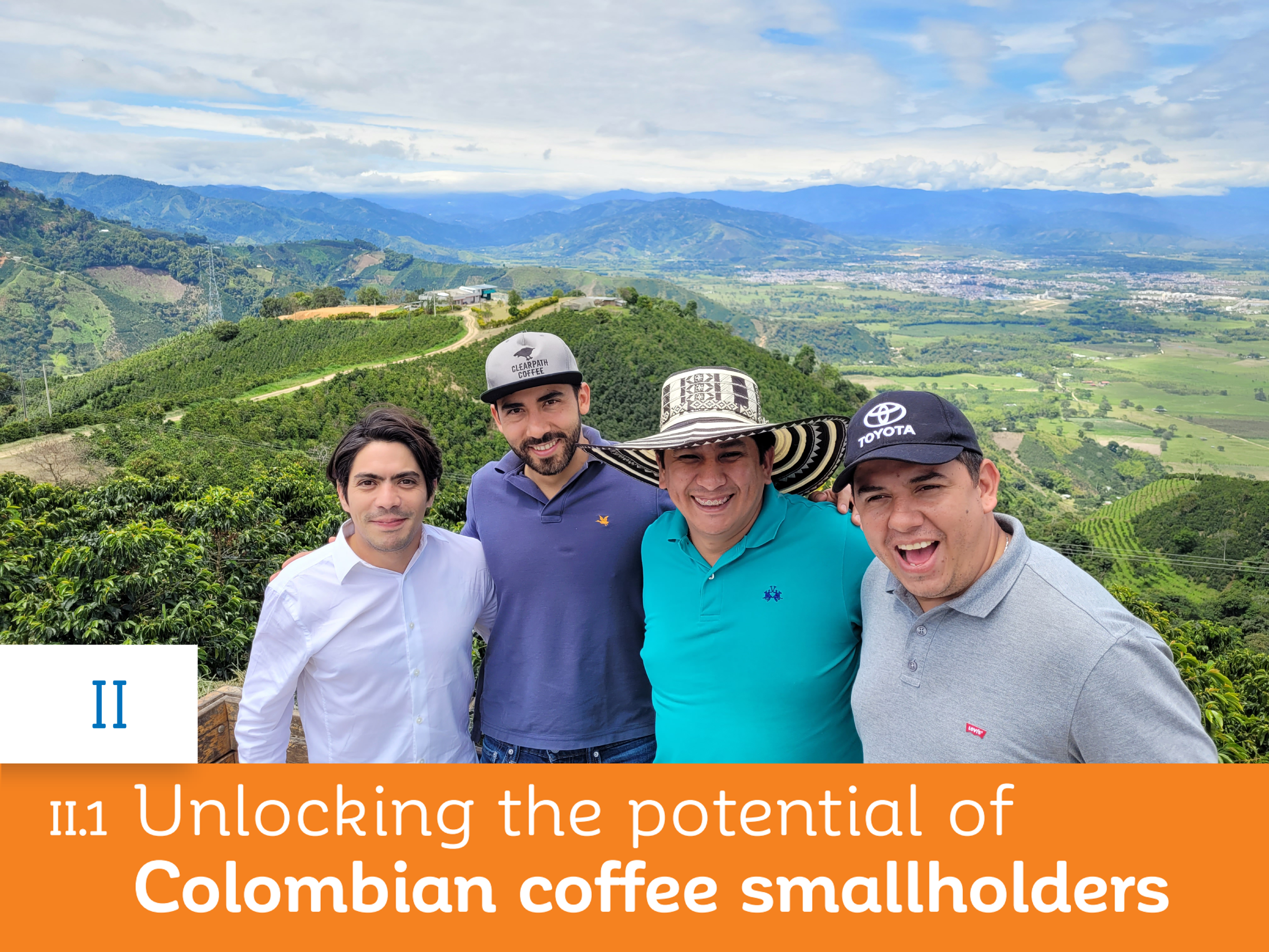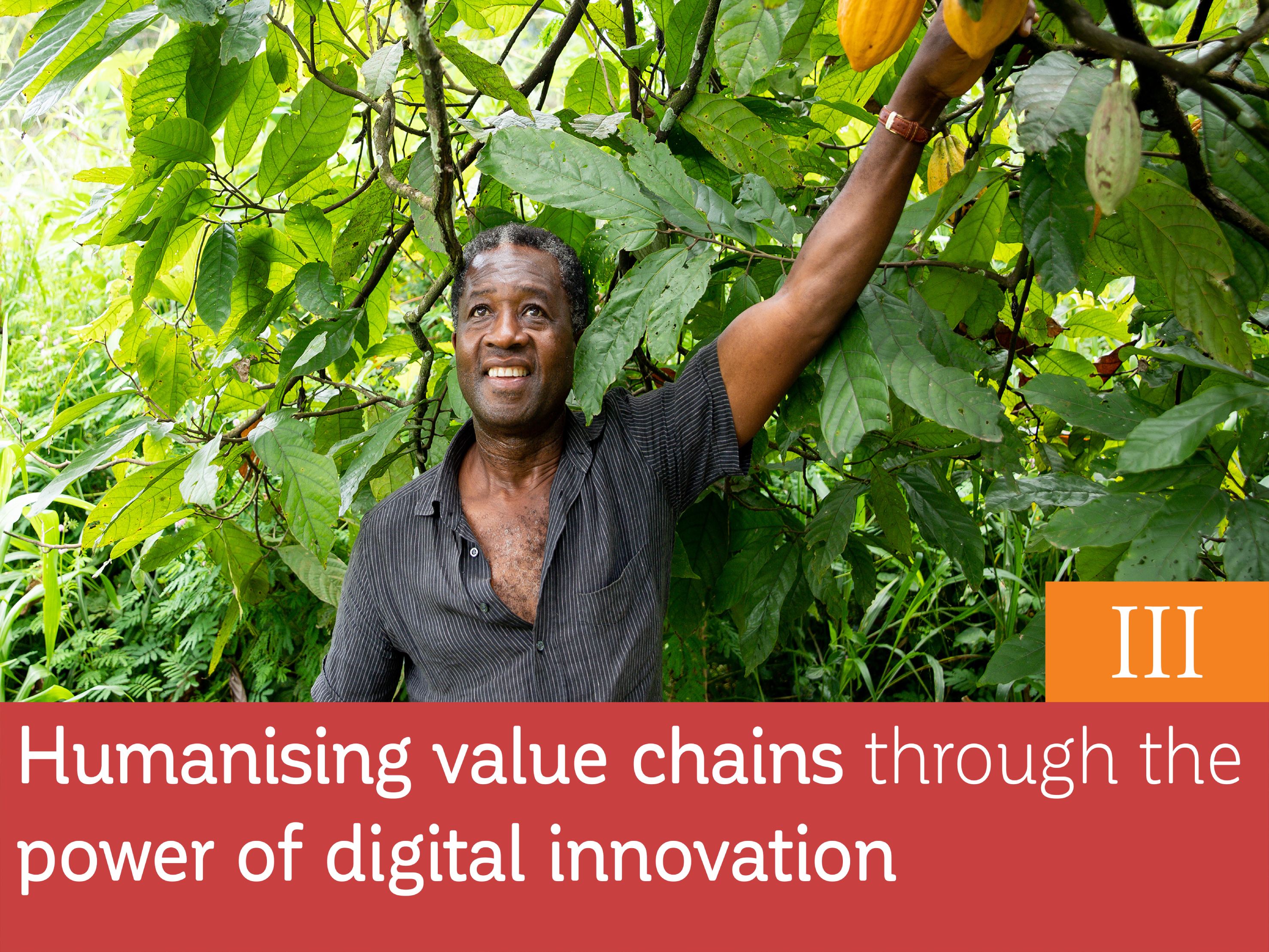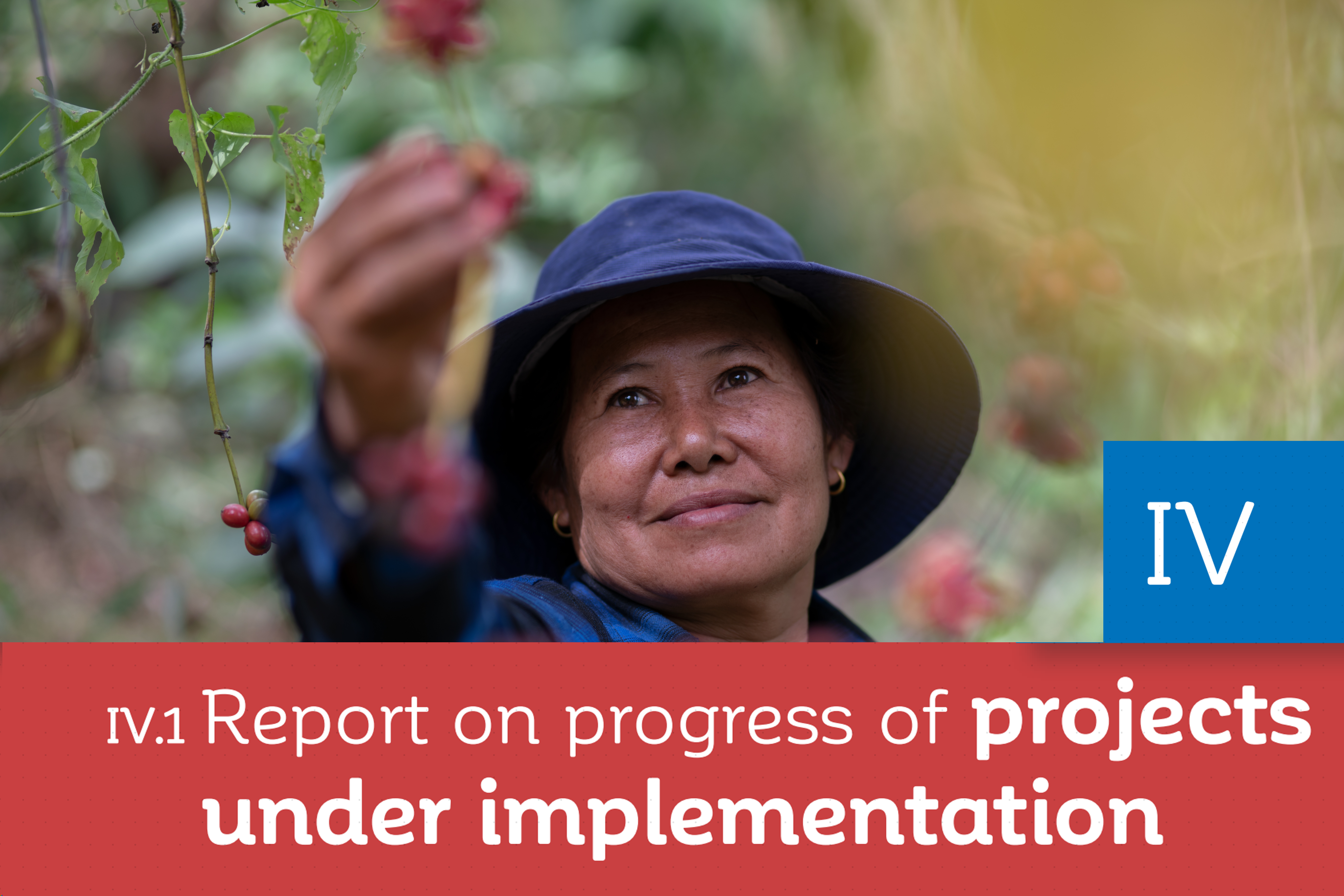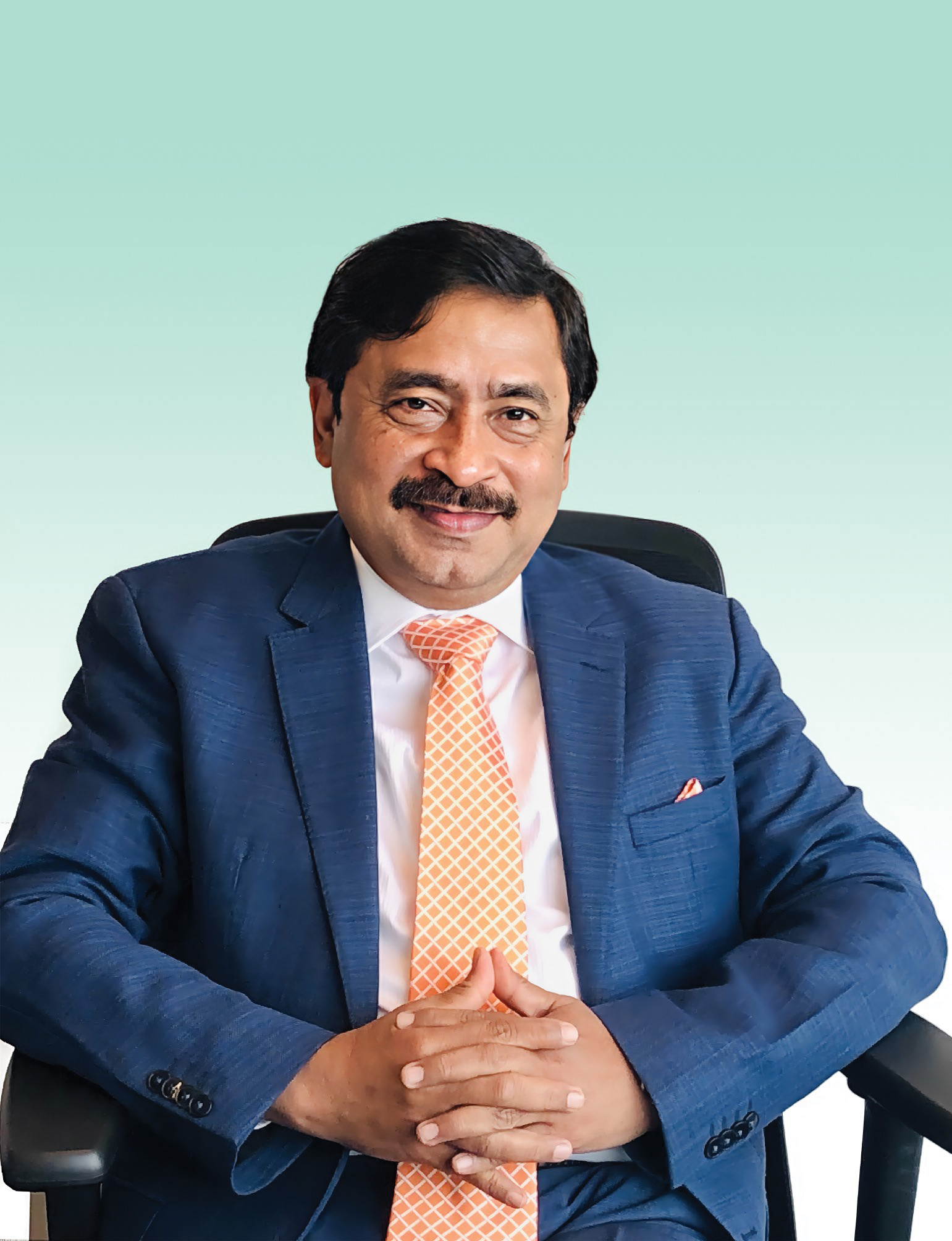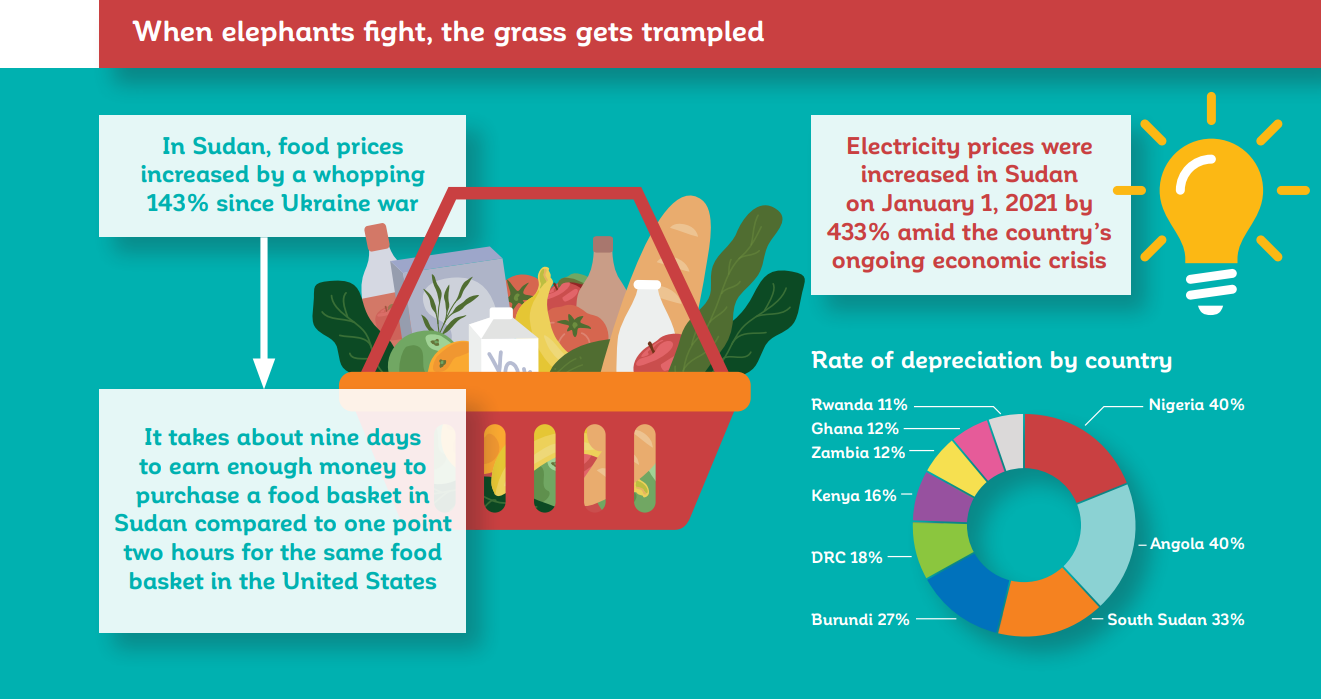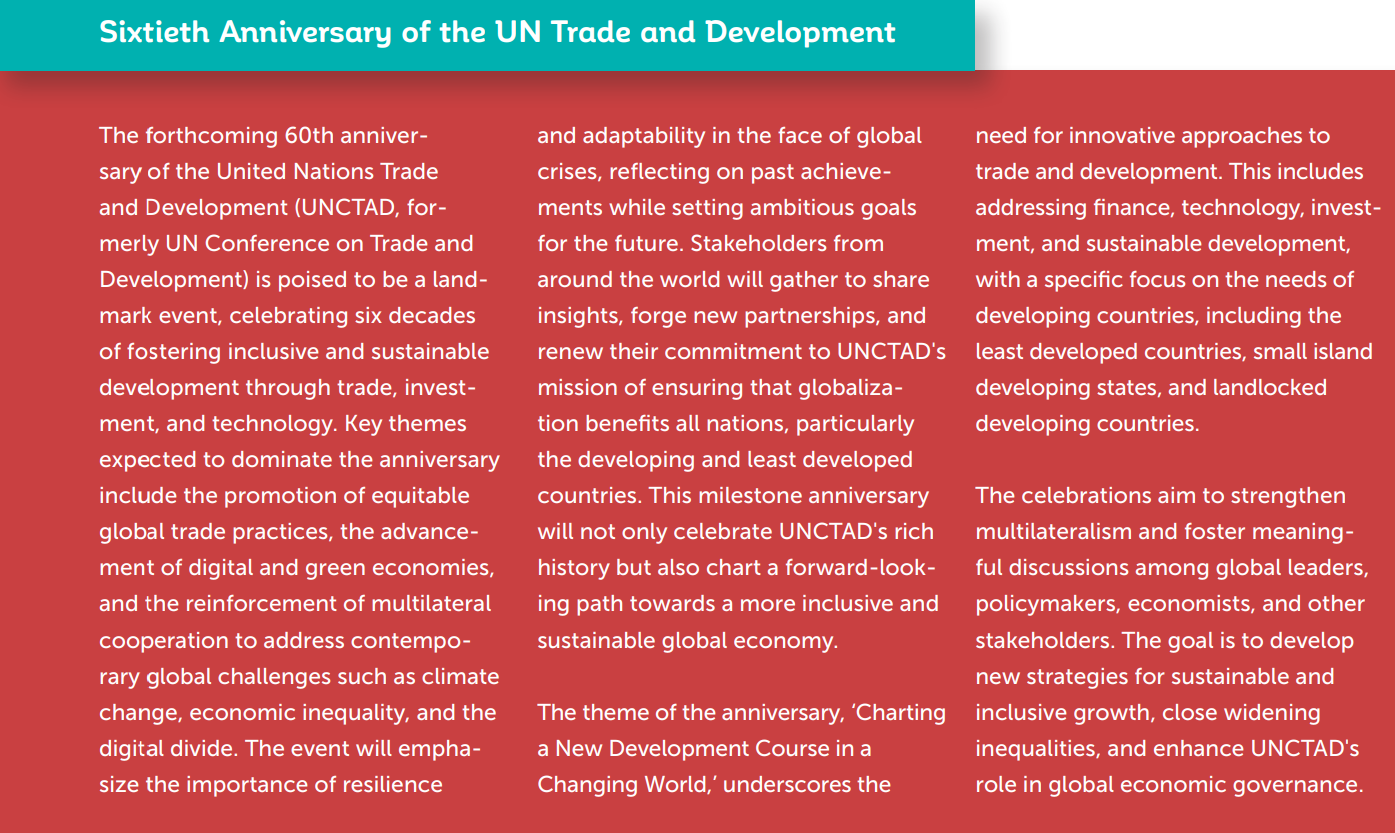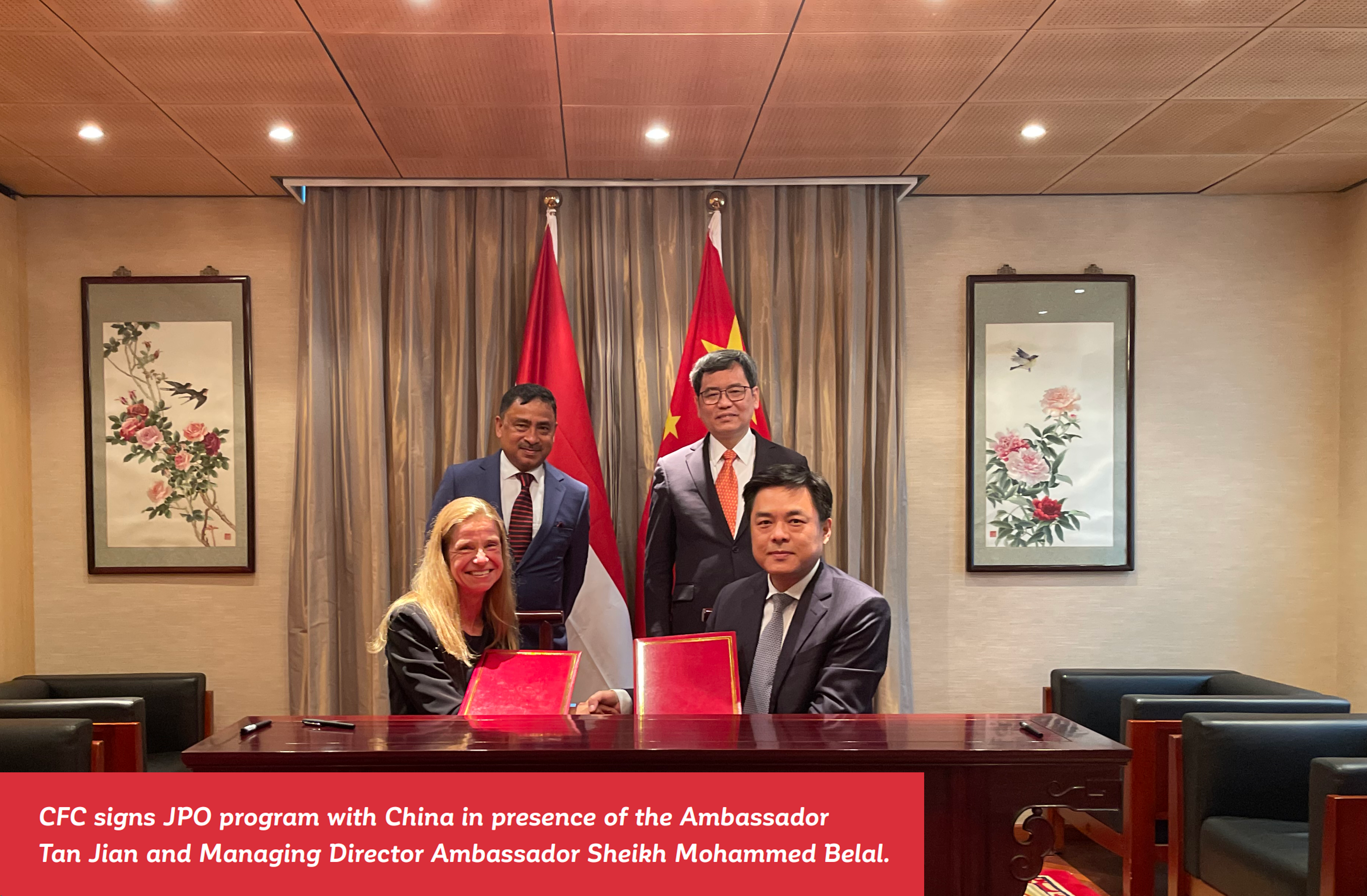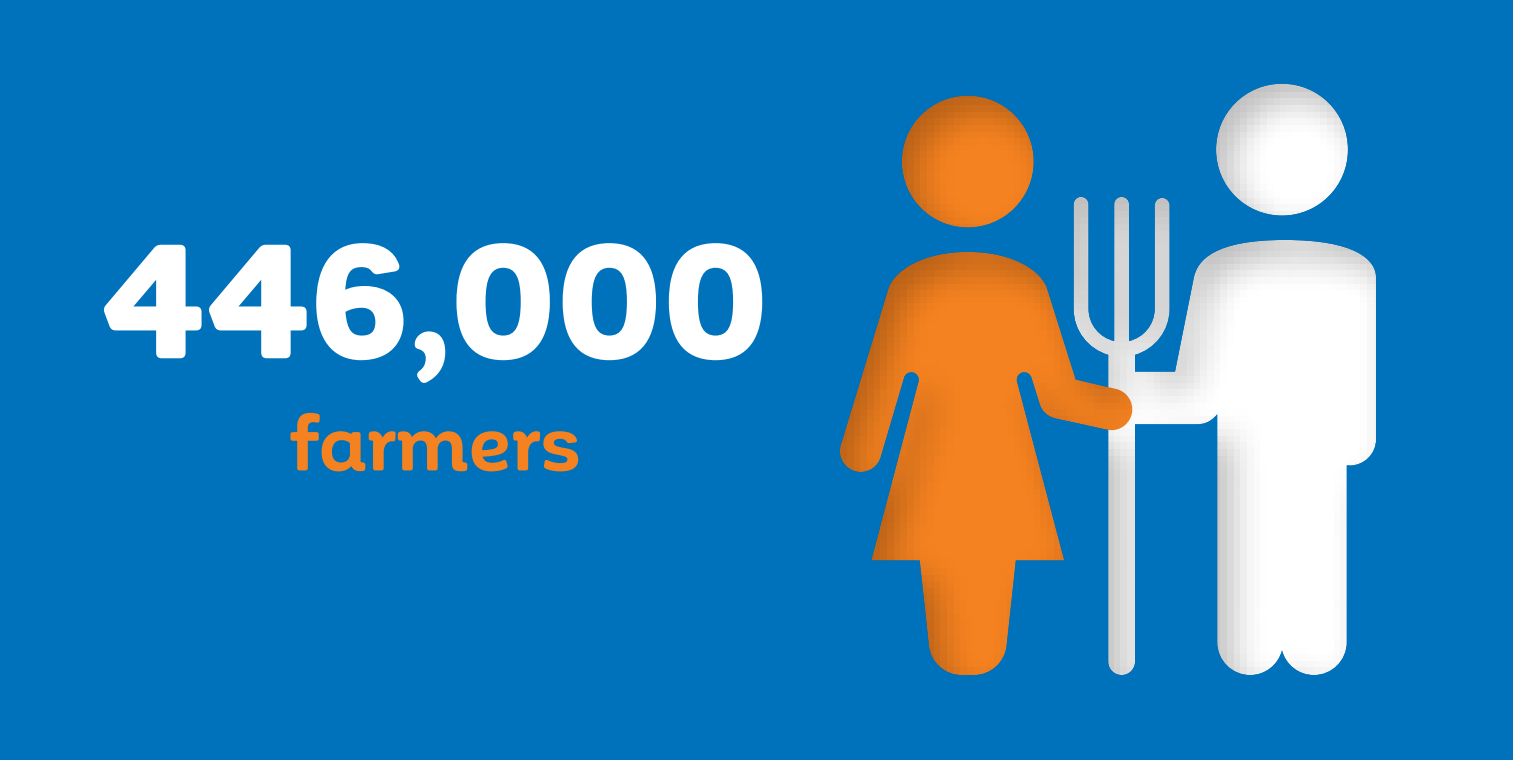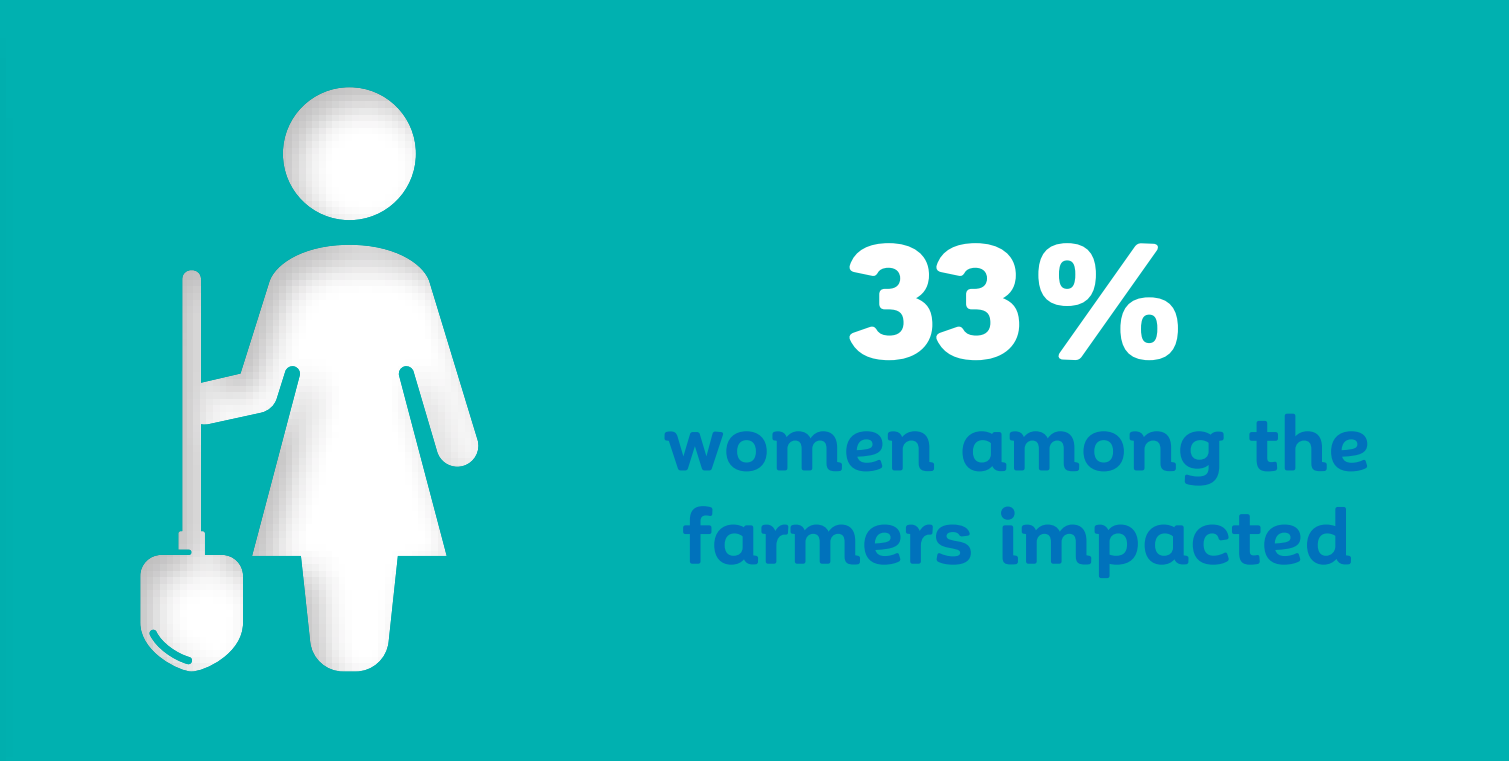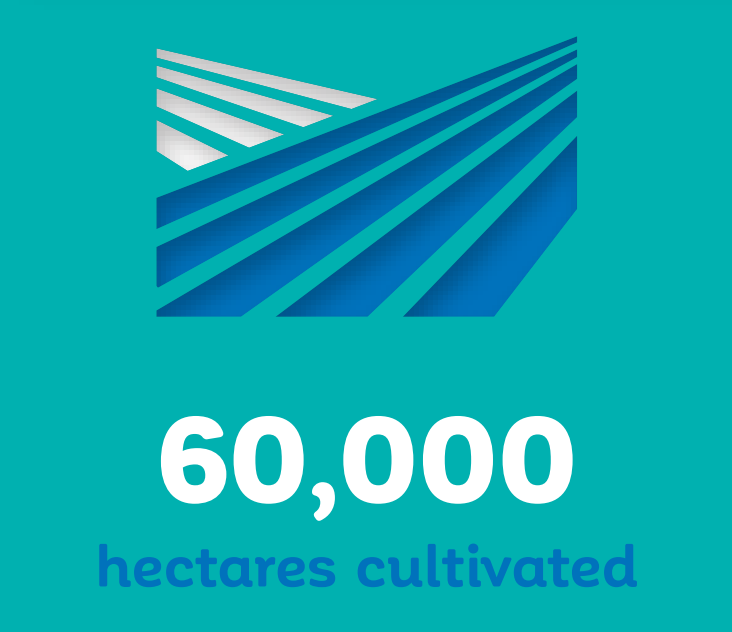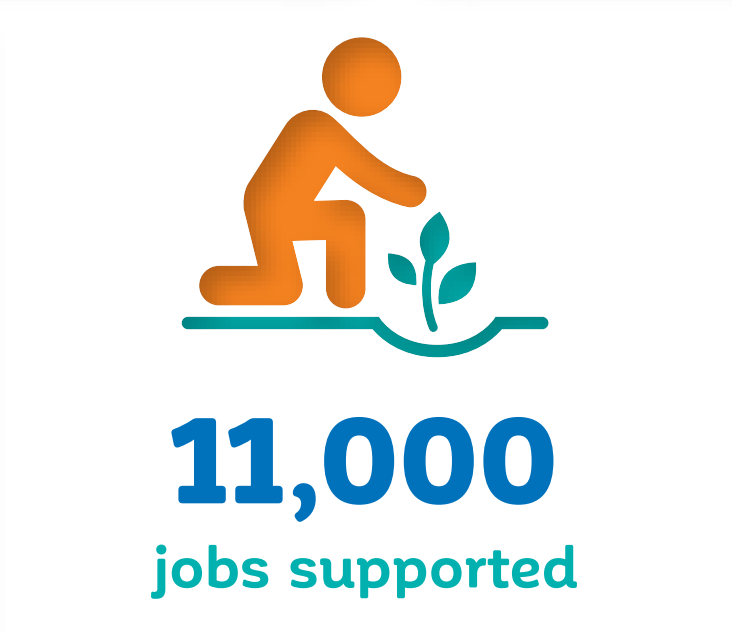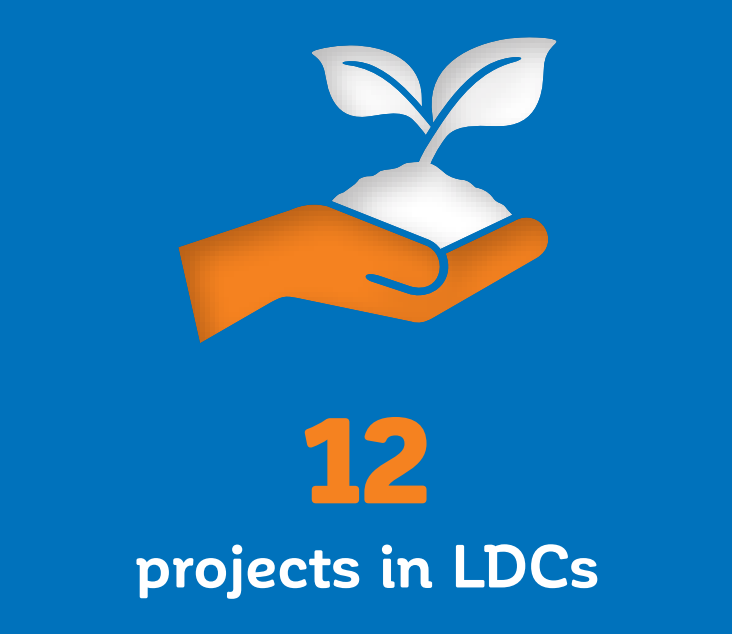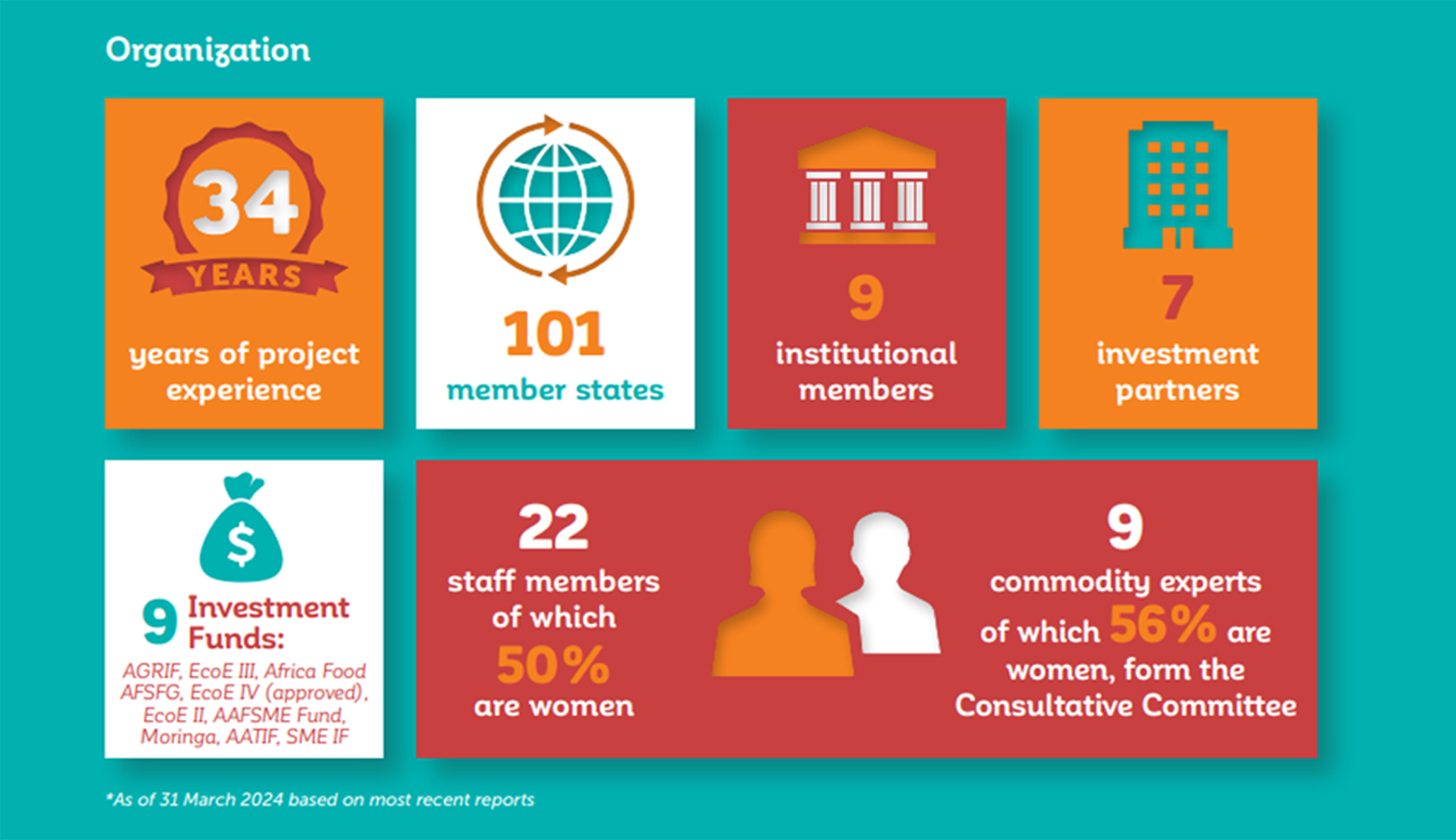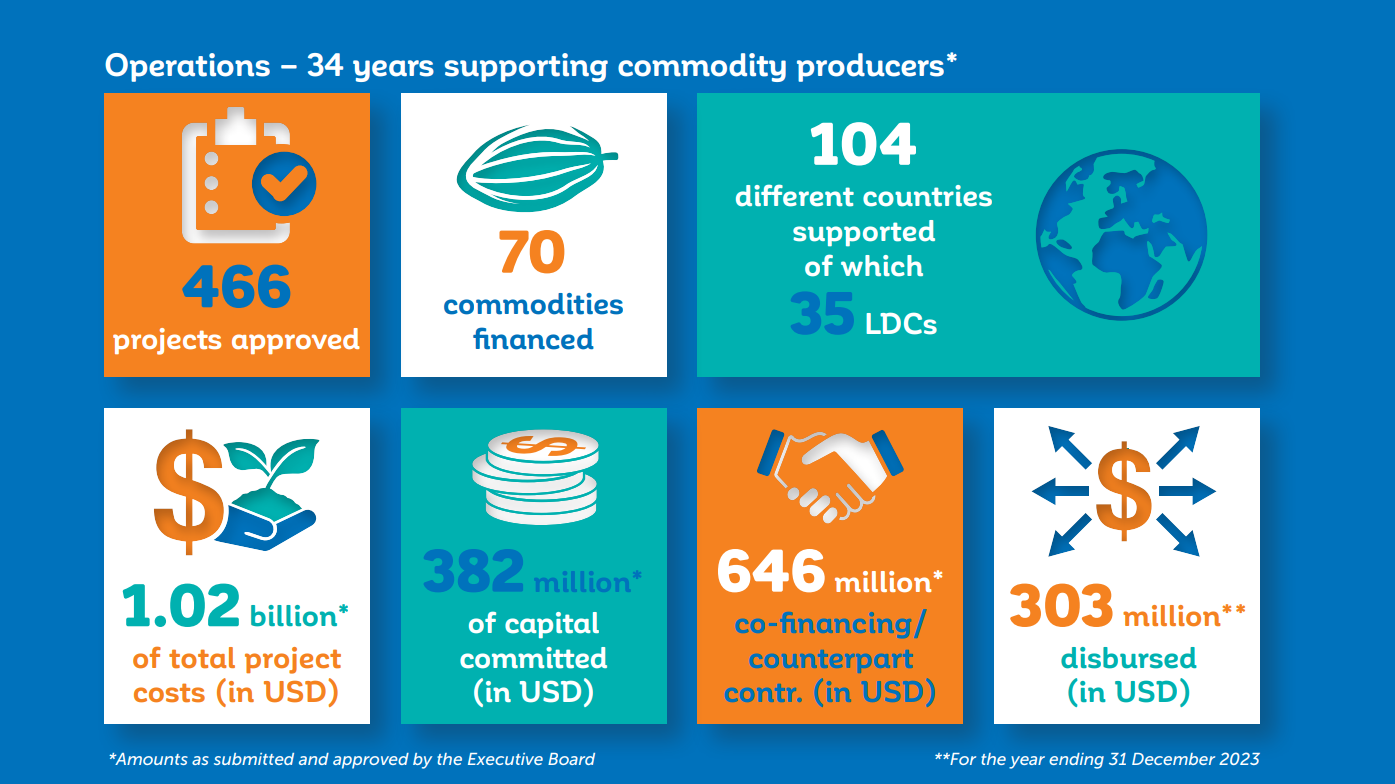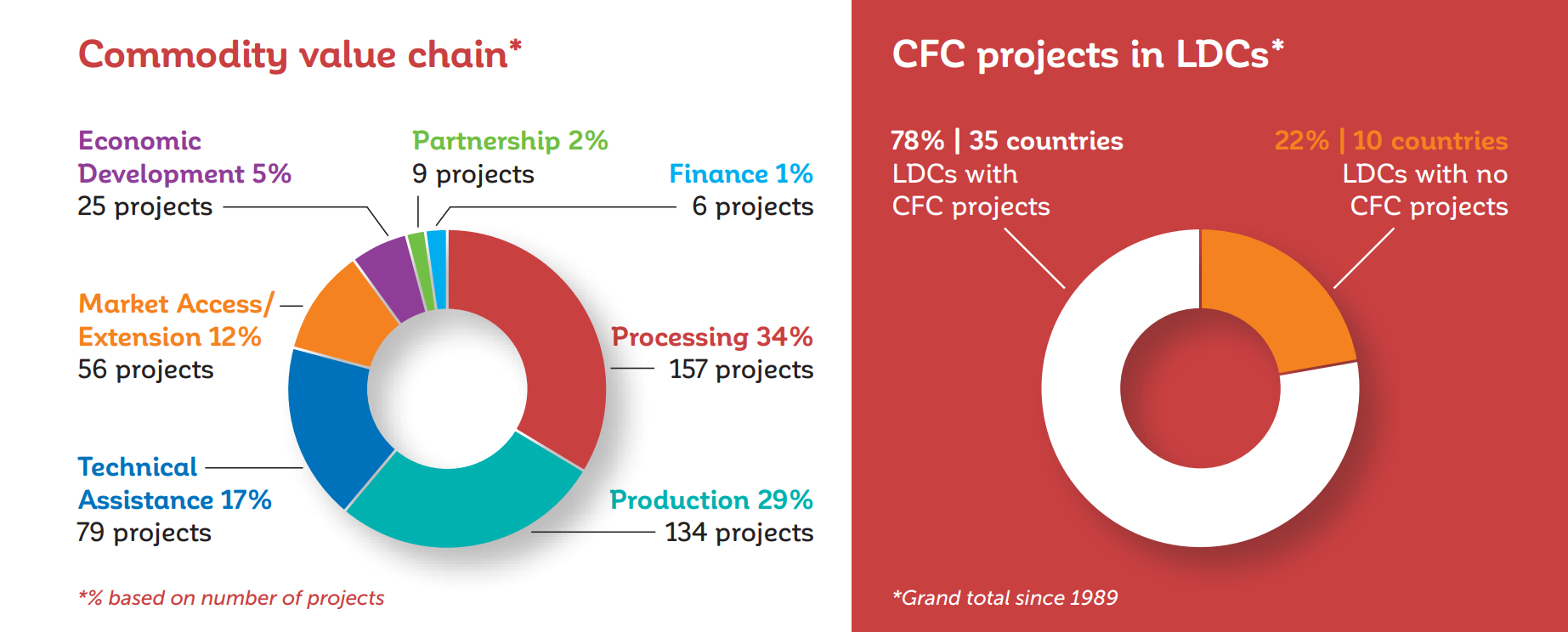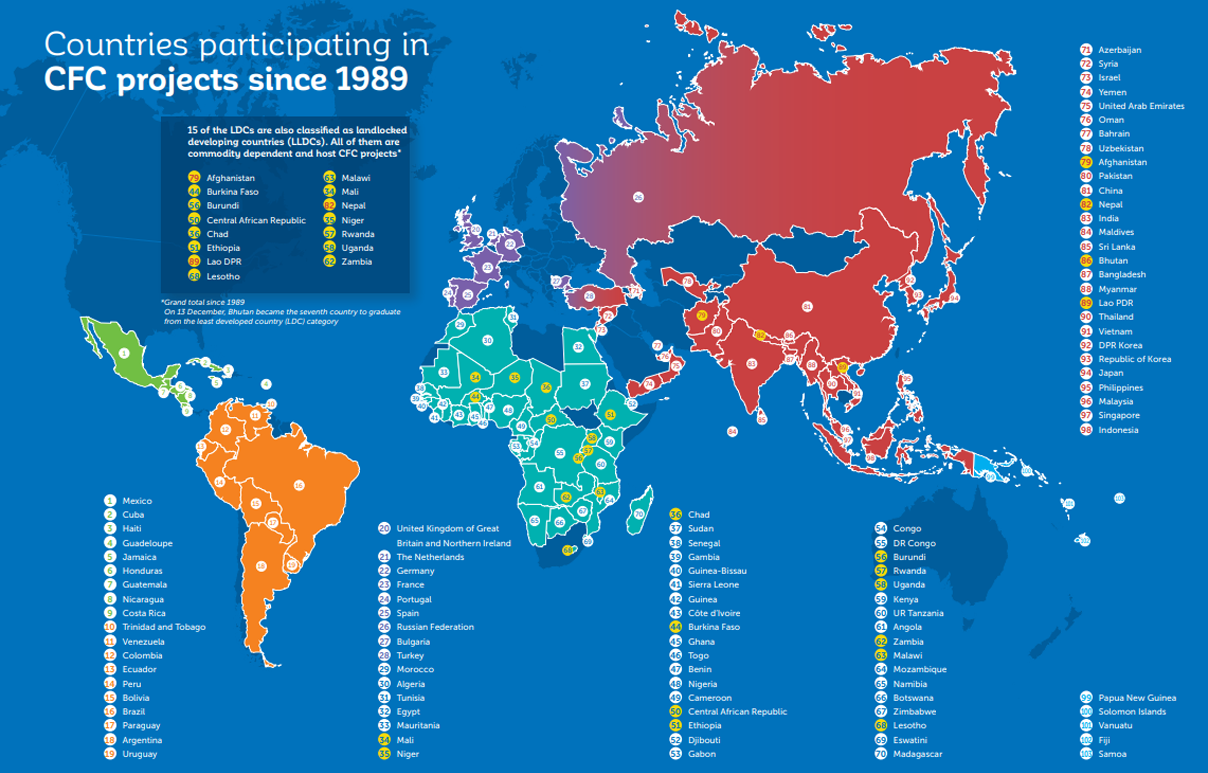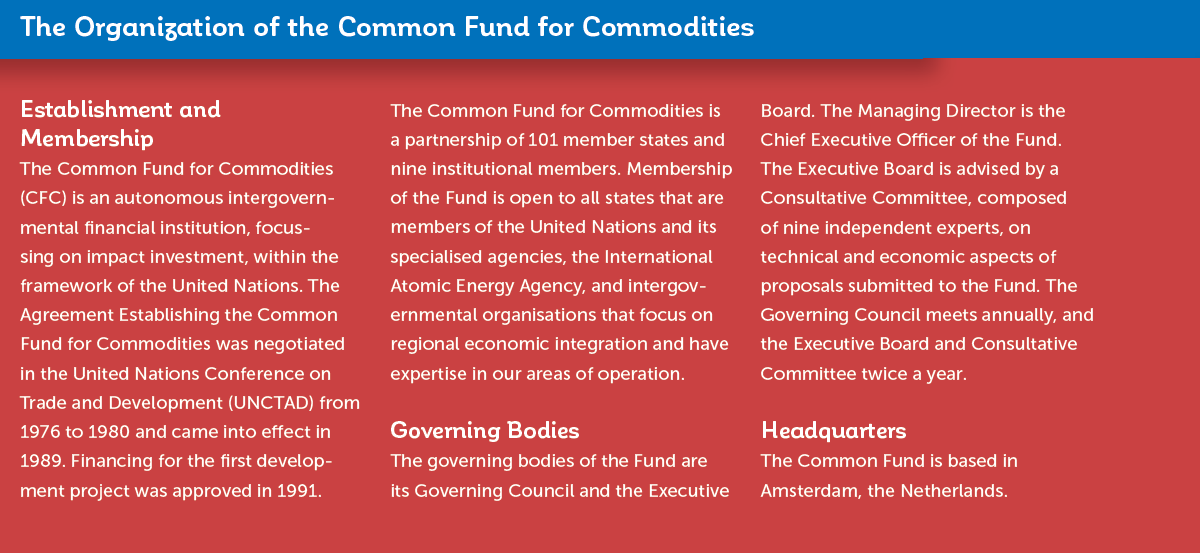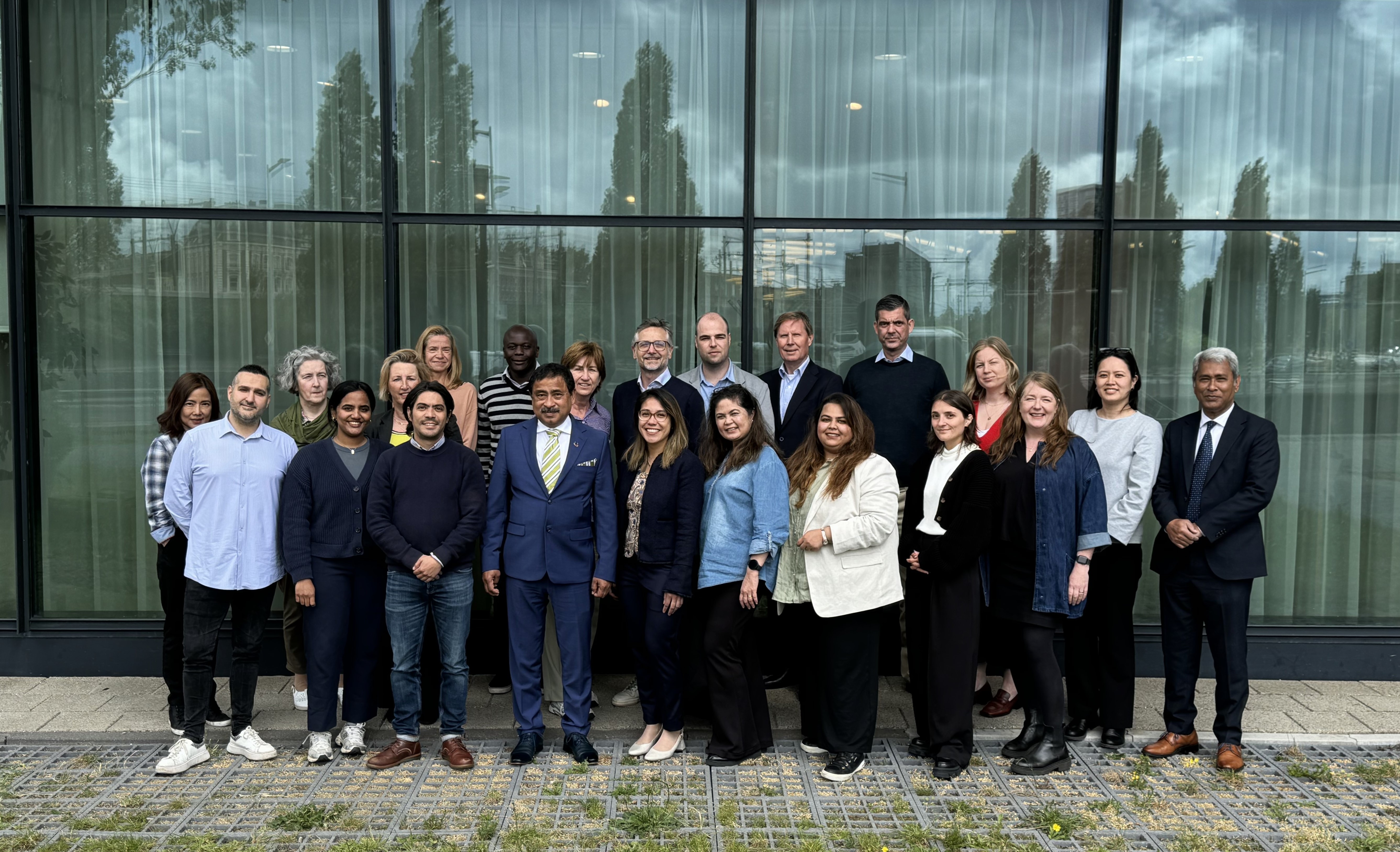Annual Report 2023
According to the UNDP, by the close of 2023, an additional 165 million people will have fallen into abject poverty. This increase is particularly severe in low and lower-middle income economies, with the poorest 20% in low-income countries bearing the brunt. Poverty often persists in concentrated areas over extended periods, creating a self-perpetuating cycle of diminished opportunities and increased vulnerability, undermining years of development efforts. Breaking this vicious cycle sustainably remains a formidable challenge for the CFC in commodity-dependent countries.
Given that fact that as per latest UNCTAD report on commodity dependency, between 2019 and 2021, only 12% of advanced economies were on the list, compared to a staggering 74% of the world's least developed countries. A total of 29 out of the 32 nations classified as having low human development in 2021 were commodity dependent, according to the UN's Human Development Index. So, for those commodity dependent countries who rely heavily on their natural resource exports for domestic employment, foreign exchange earnings and tax revenues, the unidirectional movement of profits towards the global North needs human reconsideration.
This appears urgent in the case of CFC as our internal financing capacity is approaching its limits. Over the past two years, the CFC has received a staggering 745 project proposals through its regular calls for submissions, necessitating a total of USD 665 million for full implementation. However, the CFC could only approve 33 projects, with a total commitment of USD 30.4 million. This represents less than five percent of the total proposals received. Considering this, the CFC renews its call for the resumption of voluntary contributions by member states. This appeal is in alignment with the UNCTAD IV resolution on ‘93 (IV) Integrated Program of Commodities,’ which is considered as the foundational resolution for the Common Fund for Commodities (CFC). We look forward to UNCTAD's 60th Anniversary celebrations in June 2024 which will be held under the theme of "Charting a New Development Course in a Changing World," underscoring the need for innovative approaches to trade and development"
Defying the severe liquidity squeeze, we are immensely proud of our accomplishments this year. 2023 has been another year with extremely high number of projects seeking CFC financial support, with over 400 applications received. Although a record 18 new investments were approved by the CFC's Executive Board, this is still only a fraction of what our valued applicants wish us to invest in.
These approvals accounted for a total value of nearly USD 280 million, with USD 14 million coming directly from CFC. These investments are aligned with the core Sustainable Development Goals (SDGs), targeting areas such as poverty alleviation (SDG 1), hunger eradication (SDG 2), gender equality (SDG 5), economic growth (SDG 8), innovation (SDG 9), reducing inequalities (SDG 10), responsible consumption and production (SDG 12), and climate action (SDG 13).
These partnerships reach over 98,000 farmers, a net additional income of up to USD 2,750 per annum. An additional 11,000 jobs were supported by investee companies of the CFC, thereby enabling CFC to contribute sustainably and in substance to the needs of the poor and underprivileged.
Given this heightened demand for CFC financing, the developments regarding the Agricultural Commodity Transformation Fund (ACT Fund) are particularly timely. The ACT Fund will aid in meeting the increasing demand for impact investment in the commodity sector. Beginning in September 2023, the CFC team commenced fundraising discussions with potential investors identified during the market testing stage.
We aim to raise approximately USD 100 million to meet our increased demand through the ACT Fund. We continue to appeal to those member states that are major beneficiaries of commodity trades to step forward and help make the world of commodities fairer and more just. We urge that a change in the system is required to address the rules of the game which are predominantly set by industrialized countries, often sidelining the very nations and people who depend most on commodities for their survival. You can find more information about the CFC's ACT Fund in Section II of this report (page 14).
This initiative serves as a catalyst for transformative change. The Governing Council in its 35th Meeting held a side event to introduce groundbreaking projects spanning coffee, macadamia, handicrafts, and crucial infrastructural facilities – each playing a vital role in empowering commodity producers. This covered in Section VI of this report (page 41). This exemplifies how our investment in the resilience of grassroots enterprises in commodity-dependent developing countries is not merely assistance – it is a lifeline. Our mission is to localize development by implementing a model where local wisdom is harnessed and synergized with modern science and technology, wherever feasible.
In this endeavour, we recognize the crucial nexus between smallholders and small to medium-sized enterprises (SMEs). By fostering this bond through strategic interventions and vital inputs, we aim to elevate the income levels of small-holders and achieve significant milestones on the path to sustainability. Our approach involves empowering local communities by integrating their traditional practices with advanced scientific methods, thereby creating a harmonious and effective development strategy. Through targeted initiatives, we strive to enhance productivity and resilience, ensuring that the benefits of technological advancements are accessible to all. By bridging the gap between local knowledge and contemporary innovations, we are committed to driving progress that is both inclusive and sustainable, ultimately contributing to the economic upliftment of smallholders and the broader community.
In this report we present to you a feature article on humanizing the commodity value chains. Reducing disparities is central to our mission, and one way to achieve this is by humanising value chains, connecting consumers with the hardworking individuals behind the products they enjoy, such as chocolate bars, lattes, and t-shirts. Consumers increasingly seek sustainably produced goods, which includes fair compensation for workers. Rapidly developing technologies like blockchain and AI can play a crucial role by ensuring more of the money spent on products reaches smallholder farmers. Digital traceability tools provide consumers with detailed knowledge about the origins, creators, and production processes of products. Additionally, these technologies could enable consumers to tip farmers, like how they tip delivery workers, cab drivers, and waiters.
To gain further insight into how the CFC investments support smallholders through value chain innovation, read about the impact of our investments in: Clearpath coffee (Section II.1, page 12) and Organic Africa (Section II.2 page 23). This is only a snapshot of what we have been doing. You will see the full summary of our current operations in Section IV.3 of this Report (page 22).
CFC has always been keen to invest in agribusinesses that work with commodities such as millets, while helping small-holders build food security and develop more stable livelihoods. For example, read how our investment enabled grain trader Shalem to transition into an added value manufacturer that is supporting Kenyan smallholders to thrive: https://common-fund.org/supporting-kenyan-smallholders-thrive. With high impact project like this, CFC have been a very active participant in celebrating 2023 as the Year of Millets as was designated by the United Nations at the urging of India.
As an impact investor, CFC takes the issue of technical assistance with utmost importance. As it houses a talented team of TA experts capable of working as consultants for other impact investment fund, we are proud to see their diversified portfolio across the world. Aside from the core investments, the activities of our TA team in the Africa Agriculture and Trade Investment Fund (AATIF) and Agroforestry Technical Assistance Facility of the Moringa Fund (ATAF) helped rolling out 136 projects spanning 23 countries throughout Africa and Latin America regions. These initiatives have provided indispensable support to 46 agribusinesses and financial institutions, fostering growth and resilience across diverse agricultural value chains.
We know we are small. Not by design but by default. The founding parents of CFC always wished to see CFC working for all the commodity producing smallhodlers so that poverty could be uprooted at its origin-at the grassroot. To bring CFC closer to what it was intended, we are working to prepare our next batch of strategic frameworks. To do that, we need all member states to join their hands to restore CFC to what it was envisaged to do more to empower our smallholders with what they rightfully deserve. But to do more, we need larger partners such as the SIDA, BII, FMO, KfW, World Bank, IMF, IFC, GCF, EU and the broader UN ecosystem, to de-risk our investments with concessional finance.
Photo: CFC Consultative Committee
Photo: Tashfia Mubtasim, CFC



